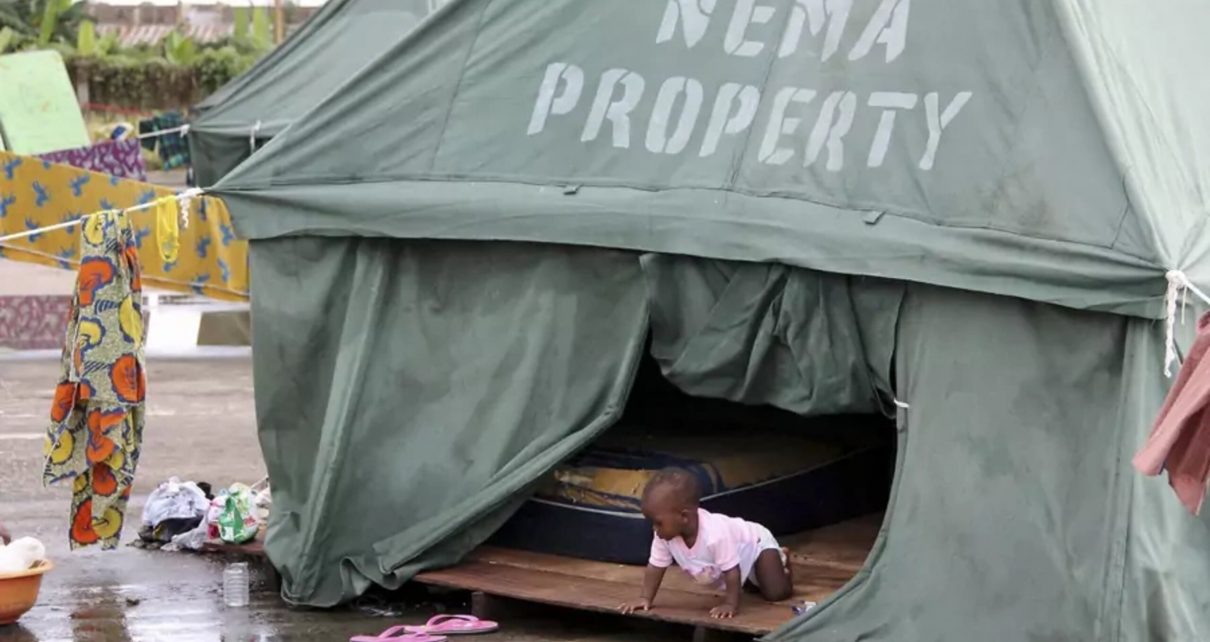In the face of unexpected disasters that can swiftly devastate communities, the imperative of robust disaster management structures at the grassroots level cannot be overstated.
“The first lifesaving responders are always local before additional support will come from the state capital or Abuja,” Director-General Mustapha Ahmed Habib highlighted, emphasising the crucial role of local communities during disasters.
The National Emergency Management Agency (NEMA), guided by Director-General Mustapha Ahmed Habib, has consistently championed this approach, especially as the 2023 rainy season brings anticipated flood threats.
“Community-level disaster management empowers residents to take ownership of their safety,” Director-General Habib stated, underlining the philosophy behind the agency’s strategy.
Through fostering cooperation between neighbours, first responders, and local authorities, these structures form a cohesive network capable of rapid response during crises.
“We can build safe and resilient communities and by extension a safer and resilient Nigeria,” Director-General Habib asserted, underscoring the potential long-term impact of the approach.
This grassroots strategy facilitates swift needs assessment, efficient resource allocation, and timely evacuation plans, minimising loss of life and property damage. Additionally, community-level disaster management encourages preparedness and resilience.
Equipped with information and training, residents can proactively plan for area-specific hazards, ensuring the most vulnerable members, such as the elderly or disabled, are not neglected during emergencies.
Speaking at the recent programme “Downscaling of Disaster Early Warning Measures to The Grassroots for Effective Life-Saving Early Actions During 2023 Rainy Season,” Director-General Mustapha Ahmed Habib highlighted Nigeria’s heightened vulnerability to both natural and human-induced disasters.
“Disasters are all local, they happen in particular communities in particular Local Government Areas,” Director-General Habib pointed out, emphasising the locality of disaster impacts.
Driven by climate change, Nigeria contends with predictable and recurrent flood disasters, entailing substantial human and material costs.
Aligned with NEMA’s shift towards Disaster Risk Reduction, the agency pledges support for sub-national actors, including States, Local Governments, and communities. This move empowers them to take charge of disaster preparedness, mitigation, response, and recovery.
Implementing this transformation necessitates the utilisation of scientific data in the form of impact-based predictions, forming the bedrock of early warning advisories and disaster risk mapping delivered to stakeholders in disaster management and development planning.
Beyond immediate disaster response, community-level initiatives also bolster sustainable development. Integrating disaster resilience into urban planning, infrastructure, and zoning regulations enhances cities’ capacity to endure future catastrophes, alleviating both economic burdens and human suffering.
While government agencies play an indispensable role in disaster management, the Director-General’s bottom-up strategy augments the entire disaster response framework.
Underlying this approach is the recognition that diverse categories of disasters exist.
“Certain disasters can be avoidable; others can be transferable or adaptable,” Director-General Habib affirmed, highlighting the various dimensions of disaster impacts.
To actualise this, support for Local Emergency Management Committees (LEMCs) is pivotal, involving capacity building, funding, and equipment to disseminate Disaster Risk Management at the community level. The outcome is the creation of secure and resilient communities, contributing to a safer and more resilient Nigeria.
These measures, once realised, instil a sense of collective responsibility, empower individuals, and ultimately save lives. As climate-related threats surge, embracing this imperative transcends choice, evolving into a necessity for constructing a safer and more resilient future.



